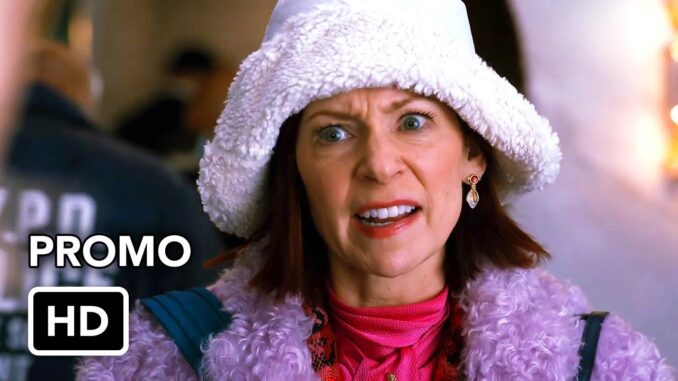
Elsbeth: A Kaleidoscope of Quirks, Law & Order Wit, and the Reinvention of the Detective
Elsbeth Tascioni, the endearing and undeniably eccentric lawyer first introduced to audiences through "The Good Wife" and "The Good Fight," has always been a captivating force of nature. Now, in her own eponymous series, "Elsbeth," she doesn't just exist; she explodes onto the New York City landscape, reinventing the detective format with a uniquely witty and observational style, all while retaining a playful wink to the procedural foundations laid by the "Law & Order" franchise. "Elsbeth" isn't just another crime show; it's a vibrant, kaleidoscopic reimagining, where the formula is both respected and lovingly subverted.
One of the key ways "Elsbeth" redefines the detective genre is through its focus on perspective. Unlike the brooding, world-weary detectives we often see, Elsbeth approaches crime scenes with a childlike curiosity, a relentless optimism, and an uncanny ability to notice the overlooked. This isn't just a character quirk; it's a deliberate narrative tool. Her wide-eyed observations, often delivered in a rapid-fire, almost stream-of-consciousness style, peel back layers of deception that more conventional detectives might miss. Take, for instance, her noticing the subtle asymmetry of a flower arrangement, leading her to uncover a hidden compartment revealing a crucial piece of evidence. This isn't brute force investigation; it's a delicate dance of observation and intuition, a refreshing departure from the hard-boiled stereotype.
Further distinguishing itself, "Elsbeth" embraces the "Law & Order" spirit, but in a decidedly unconventional manner. While maintaining the procedural structure of investigating a crime, apprehending a suspect, and moving towards a resolution, the show gleefully throws a wrench into the typical legal machinations. Instead of focusing on courtroom dramas and intricate legal arguments, "Elsbeth" dedicates its time to the fascinating pre-trial investigation, highlighting the creative and often humorous methods she employs to gather information and expose the truth. Think of it as the best part of "Law & Order," the detective work, amplified and filtered through the lens of Elsbeth's unique personality. The legal jargon is minimized, replaced by witty banter, quirky deductions, and a playful cat-and-mouse game with both the suspects and her skeptical colleagues.
The show’s brilliance also lies in its understanding of the supporting characters. Detective Kaya Blanke, initially wary of Elsbeth's methods, slowly begins to appreciate her unconventional approach, eventually becoming a willing and invaluable partner. Captain Wagner, while initially exasperated by Elsbeth's eccentricities, recognizes the brilliance beneath the surface. These dynamic relationships add depth and humor to the show, allowing Elsbeth to not only solve crimes but also challenge the status quo and subtly influence those around her. It’s not just about catching the bad guy; it's about changing perspectives and fostering understanding, even within the rigid structure of the police department.
Furthermore, "Elsbeth" injects a healthy dose of humor into the often grim world of crime. This isn't cheap slapstick; it's sophisticated, character-driven humor that arises from Elsbeth's unique worldview and her interactions with the world around her. From her tendency to wander off mid-conversation to admire architectural details to her use of seemingly unrelated anecdotes to disarm suspects, Elsbeth's humor is a powerful tool that both entertains and exposes the absurdity of human behavior. This lightness of touch allows the show to tackle serious themes without becoming overly bleak or depressing, making it a refreshing and engaging watch.
Ultimately, "Elsbeth" succeeds in reinventing the detective format by embracing the character's inherent quirks and weaving them into the very fabric of the show. It retains the familiar structure of "Law & Order" while simultaneously subverting its conventions. By focusing on observation, perspective, and character-driven humor, "Elsbeth" offers a fresh and engaging take on the crime procedural, proving that sometimes, the most effective detective is the one who sees the world through a different lens – a lens brimming with wit, wonder, and a touch of delightful eccentricity. It's a testament to the power of character and a reminder that even within the well-worn confines of a genre, there is always room for reinvention.
